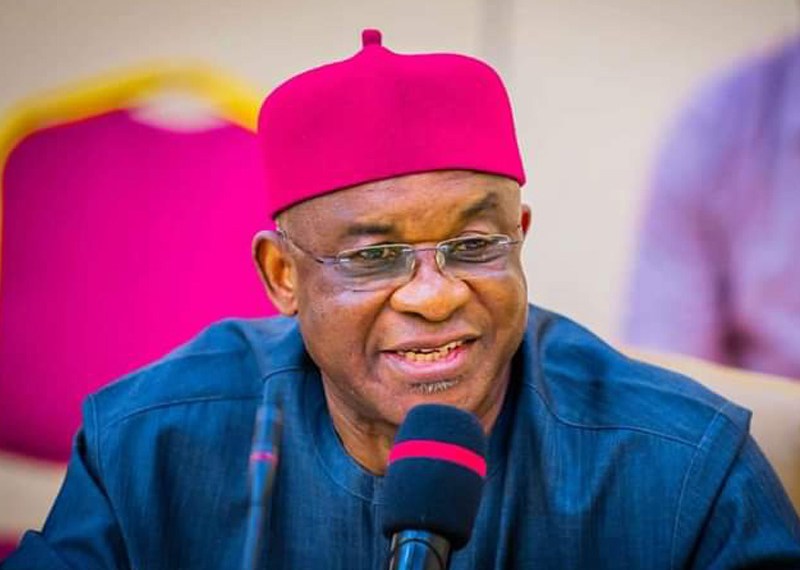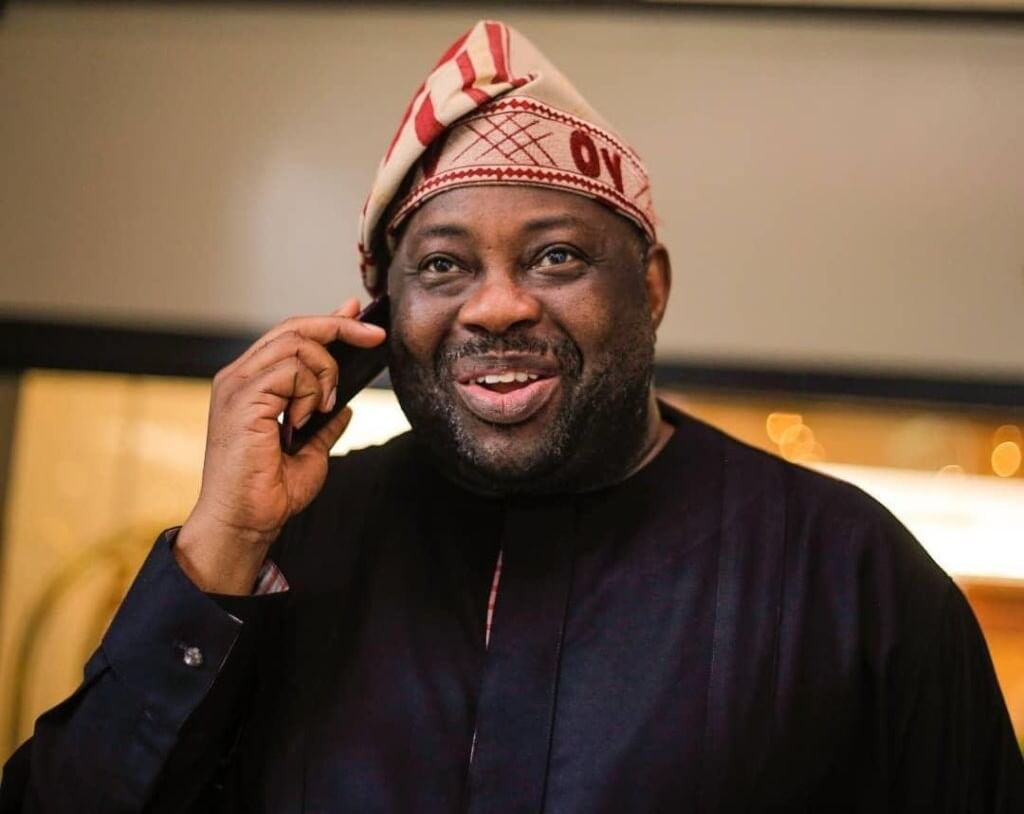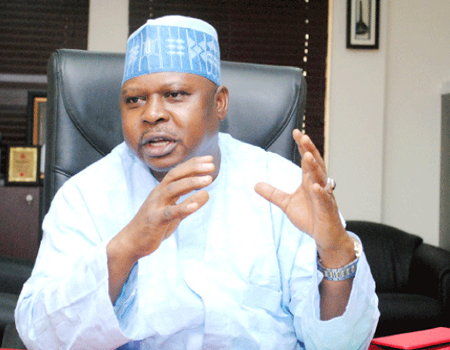The Government of Kogi State has lambasted the Director General of the Nigeria Centre for Disease Control ( NCDC), Dr. Chikwe Ihekweazu for comments made during the daily COVID-19 briefing.
The government in a statement signed by the Commissioner of Information stated that it was unhappy that the NCDC was rubbishing its good work by stating that it has not reported positive cases of the virus.
The statement reads ” The attention of the Kogi State Government has been drawn to reports in sections of today’s press credited to Dr. Chikwe Ihekweazu, the Director General, National Centre for Disease Control (DG NCDC) insinuating that states which are yet to record cases of COVID-19 are either negligent in testing and tracing, or actively hiding, the disease within their territories.
Since Kogi State is one of only 3 states in the country yet to record any case of Covid-19, and indeed the DG NCDC is quoted to have mentioned us by name, we find the said comments, along with the unfair attempt to name, defame and shame us incredibly distressing.
Kogi State confesses that she is not aware the Covid-19 pandemic in Nigeria is a one-legged race to see which state can put as many cases as possible into the national incident basket, and even if such were to be the case, the current administration in Kogi State does not play such games with the lives and psychology of her people.
The Governor of Kogi State does not believe that increasing the burden on the overwhelmed NCDC and the other agencies cum resources labouring in the frontlines of our response to this deadly pandemic, when neither case nor cause for such has genuinely risen in the state, is helping the country in any way.
Kogi State has religiously followed all the NCDC and World Health Organization (WHO) CoviD-19 advisories, both for identifying cases and preventing spread of the virus.
We have also adhered strictly to the various guidelines from, and directives of, the Federal Government, customised to improve both efficiency and efficacy within the peculiarities of our own circumstances.
While we are not surprised that they have worked for us so far in keeping our state CoviD-19 free, we do find it disconcerting that the lead agency in the fight is possibly expressing doubt in their efficacy while simultaneously denouncing us for following her own guidelines.
In fact, we built our self-assessment app hosted at kogicovid19.gov.ng around the NCDC’s checklist for ‘suspected and high risk’ cases and as at last week it has been visited nearly 200,000 times with over 14,000 completed self-assessments out of which only about 60 presented cause for further investigation which then failed to meet the Covid-19 spectrum.
As of today being Tuesday the 28th Day of April, 2020 we insist that Kogi State has no confirmed case of Covid-19, or any case to the knowledge of our vigilant medical structures across the state which matches the suspected or high risk factors for it. If the situation changes at this very moment we shall not hesitate for a second before alerting the NCDC.
Convinced that we have not erred in any way to deserve censure from a body we have obeyed without complaint, even when the result has been serious disruptions to our society and way of life, we however reiterate that we shall not capitulate to intimidation of any kind.
Accordingly, if the latest position is to forward all cases of cough, catarrh, fever and allied febrile and respiratory ailments occurring in Kogi State to the NCDC unvetted as possible CoviD-19 cases, we demand a firm and public advisory to that effect from the agency, and not the indirect (and documented) pressure which we have come under this week from high up the hierarchy of the agency.
We are thus left with no choice than to issue this rejoinder, both for the records, and to avoid being unfairly victimised or stigmatised howsoever the highly fluid coronavirus curve/situation develops in future.
Such comments as were attributed to Dr. Chikwe Ihekweazu in the offending news reports, if indeed the NCDC head was not misquoted by a mischievous newsman, can only be described as unfair, unfortunate and dubious.
They are also inherently subversive of the Federal Government’s herculean efforts to keep as much of Nigeria as possible free of CoviD-19, not to mention how they undermine the good faith and trust displayed by Kogi and other states in complying with the NCDC’s directives.
Assuming, but not accepting, that the head of the NCDC was neither misquoted nor quoted out of context, and if a strategy is actually in play, for instance the development of herd immunity to the coronavirus in the general populace (with all the scientific gray areas and dangers of mass deaths associated with that model), should state governments not be officially informed and carried along?
We sincerely hope the NCDC and Dr. Chikwe Ihekweazu will quickly come out to repudiate or retract those dangerous comments (whichever is applicable) in order to minimise damage to the mutuality of trust and cooperation which we need to continue working together through this pandemic.
For how can we, or for that matter, any other state in the Federation which cares for her people, continue to exercise faith in, and compliance with, the NCDC’s guidelines if there is even a scintilla of suspicion that rather than working with us to prevent the spread of this deadly virus, the agency has an ulterior motive to see it spread through the length and breadth of the land?
For a better understanding of the forces truly at work behind this interview we now have some questions for the NCDC in the hope that her answers will shed light on recent events of a curious nature which we are investigating as a State:
Must every State in Nigeria record cases of COVID-19 considering that not even China, the origin and for a while the epicentre of the outbreak, experienced it in every province?
In the light of known science about diagnosis and prognosis of Covid-19 and given that it has been several months since we started hearing of the so-called asymptomatic carriers, is it possible for such individuals to remain so indefinitely – neither showing symptoms themselves nor infecting anyone else in proximity to them?
What informed the position of Dr. Ihekweazu that states not yet affected with the virus in Nigeria are hiding cases or was he expressing an expected outcome?
The NCDC set certain criteria for people who should be tested, have those criteria changed, and if yes, when, and why was it not communicated to states via the usual official channels?
Are we moving to a stage of random testing? Does the Centre now have the resources and capacity to test all Nigerians?
Can the NCDC explain her certainty that Kogi State is among those who are hiding cases?
Does the NCDC know anything about the recent rush by known fake news merchants on social media to raise persistent false alarms on the alleged escape of COVID-19 patients from NCDC isolation centres in neighbouring States into Kogi State?
If the answer to the above is affirmative, what informed such belief and why did the NCDC deny that there were such escapes when health authorities in the state approached her for confirmation after each rumour spread?
Given the devastation wrought by the disease in several locations across the country including in health institutions where patients or their doctors have tried to hide cases of COVID19, does the NCDC believe that any right thinking Governor will hide cases in his State?
Assuming a Governor were to exhibit such mental imbalance as to attempt to hide cases of COVID-19, does the NCDC believe he will not only do so without the body count exploding but that he will also receive the connivance of the medical, media, civil society and traditional institutions in his state, as well as the general public?
If Kogi State did not hide Lassa Fever cases which have killed more Nigerians comparatively, why should it hide cases of COVID-19 cases which is attracting more global attention at the moment?
The work at hand remains gargantuan, for the NCDC and for all the states, and while we await the answers to the above queries, we urge the NCDC to continue investing her whole focus on the daunting task of containing the coronavirus rather than generating needless controversies which distract her and her partners from the fight at hand.
As a Government, we are ever willing to follow the guidelines already set by NCDC to protect our people as well as all lawful upgrades to them in future. We will therefore not hesitate to present samples of people who genuinely fall into the established category of symptoms to the Centre. We shall continue to work with the NCDC and other health authorities to keep Kogi State free of CoviD-19 and other forms of diseases.
The Kogi State Government also commends the leader of our nation, President Muhammadu Buhari for rising gallantly in defense of the Nigerian people at this trying time of global health apprehensions.
Difficult times define great leaders and the President has proven to be a capable leader for Nigeria at this time characterised by a willingness to empower experts and give them the stage in the interest of the nation, and beneficiaries of that trust like the NCDC and state governments must not mismanage or abuse same for any subterranean motive.
We thank the Presidential Taskforce on COVID-19, the Federal Ministry of Health and of course the NCDC for all they have done and will continue to do until this pandemic is contained and crushed.
We wholeheartedly accept our responsibility as a Government to ensure the wellness of our people. We shall continue to do whatever needs to be done to ensure COVID-19 does not set foot in Kogi State.
We also urge the people of Kogi State to remain calm and rest assured that we have never hidden, we are not hiding, nor will we ever hide, any case of Covid-19 in Kogi State. We urge them to ignore all and every statement to that effect as nothing but malicious and dangerously instigatory rumours which government will henceforth deal with as appropriate.
S

 Boss Of The Week5 days ago
Boss Of The Week5 days ago
 Opinion5 days ago
Opinion5 days ago
 Middle East5 days ago
Middle East5 days ago
 National5 days ago
National5 days ago
 News3 days ago
News3 days ago
 Middle East5 days ago
Middle East5 days ago
 Boss Picks5 days ago
Boss Picks5 days ago
 Headline5 days ago
Headline5 days ago














